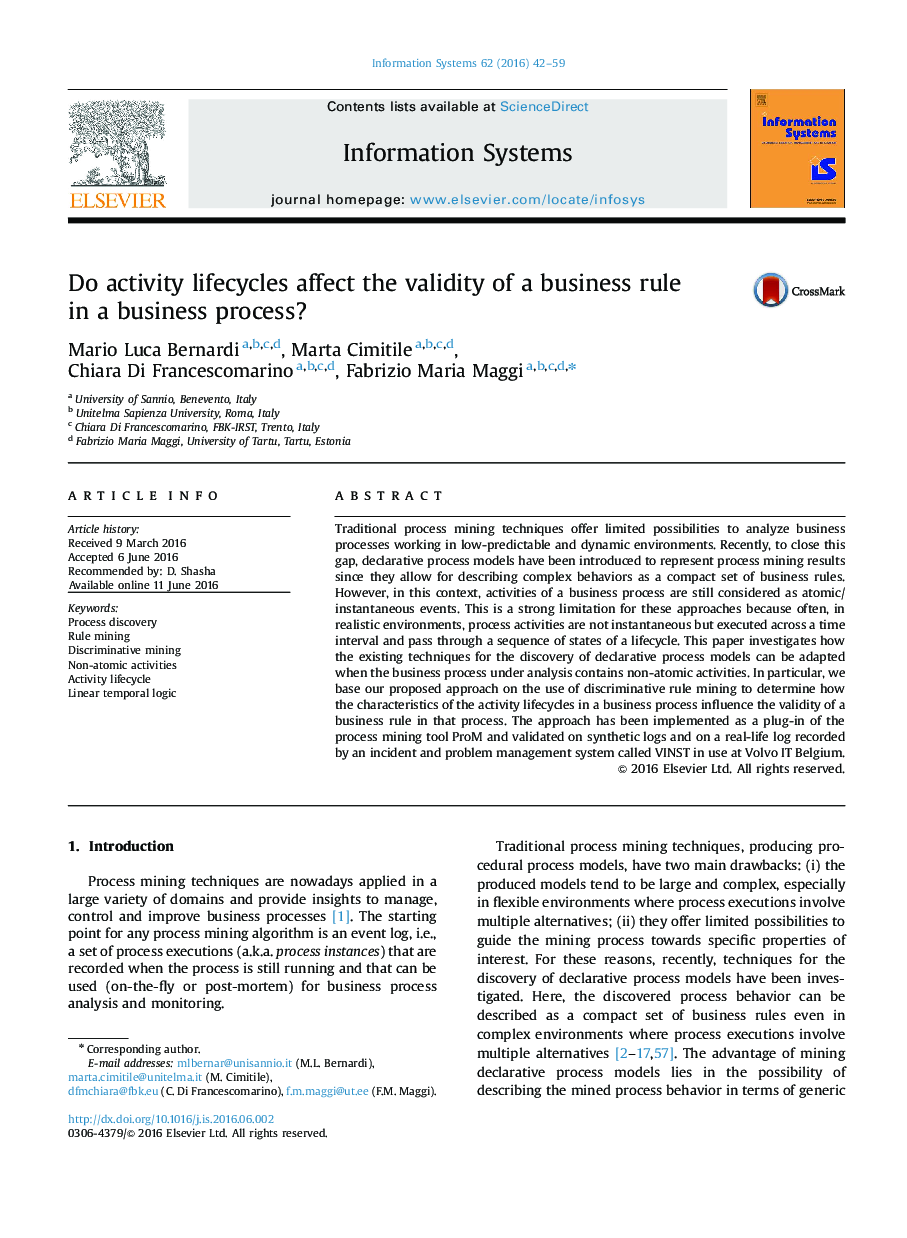| Article ID | Journal | Published Year | Pages | File Type |
|---|---|---|---|---|
| 396461 | Information Systems | 2016 | 18 Pages |
•We present an approach to discover declarative specifications from logs.•The approach has a strong focus on activity lifecycles.•The lifecycle identification can be FIFO-based or event correlation based.•The approach is implemented as a ProM plug-in.•The approach has been validated on synthetic logs and on a real-life log.
Traditional process mining techniques offer limited possibilities to analyze business processes working in low-predictable and dynamic environments. Recently, to close this gap, declarative process models have been introduced to represent process mining results since they allow for describing complex behaviors as a compact set of business rules. However, in this context, activities of a business process are still considered as atomic/instantaneous events. This is a strong limitation for these approaches because often, in realistic environments, process activities are not instantaneous but executed across a time interval and pass through a sequence of states of a lifecycle. This paper investigates how the existing techniques for the discovery of declarative process models can be adapted when the business process under analysis contains non-atomic activities. In particular, we base our proposed approach on the use of discriminative rule mining to determine how the characteristics of the activity lifecycles in a business process influence the validity of a business rule in that process. The approach has been implemented as a plug-in of the process mining tool ProM and validated on synthetic logs and on a real-life log recorded by an incident and problem management system called VINST in use at Volvo IT Belgium.
